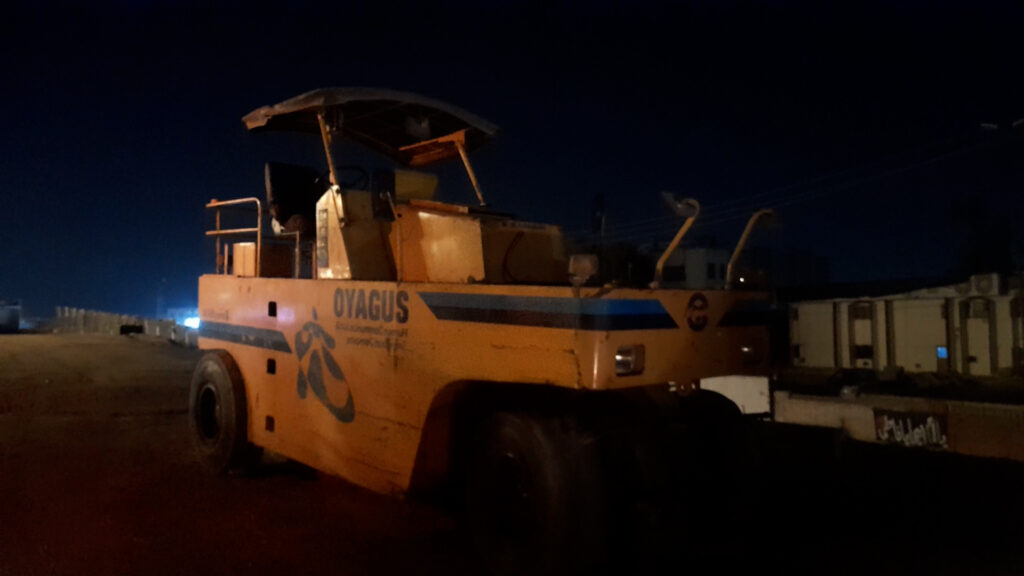Crop fields belonging to Kurds set on fire in Iraq’s Kirkuk

KIRKUK,— Crop fields belonging to the Kurdish villagers were torched in Prde town in north of Kirkuk on Friday as Iraqi federal security forces were not permitting the farmers to extinguish the fire.
Kurdish farmers said over 1,000 dunams of farmland was set ablaze on Friday.
The crop fields belonging to the Kurdish farmers were set ablaze in Kalhur, Guldara, Bibani and Zardak villages in Prde (Altun Kupri) sub-district, NRT reported.
“The [federal] security forces are opening fire at those people who want to put out the fire and they have arrested seven Kurdish farmers so far,” Ahmad said.
Also crops belonging to Kurdish farmers were set on fire again in Kirkuk’s village of Palkana on Friday, a villager said.
The Kurdish villager accused the Arab families, who were brought to the village, of torching their crop fields.
“The Arabs residing in Palkana village set on fire the cropland of Kurdish farmers,” Badradin Shamsadin, a Sargaran Town Council member, told Rudaw.
Kurds and Arabs in Kirkuk have been locked in disputes over land ownership since Arabization policies were set in place by Iraq’s former dictator Saddam Hussein.
“Those Arabs, after becoming certain that they have lost the case, have started burning the crops of the Kurdish farmers,” Shamsadin said, referring to lawsuits brought by Kurds to Iraqi courts, claiming they are the rightful landowners.
In and around Kirkuk, farmers have claimed other ethnic groups and even remnants of the Islamic State (ISIS) are setting their crops on fire.
Authorities in Kirkuk, however, blamed Islamic State (ISIS) militants.
Over the last several weeks, suspected ISIS militants have burned hundreds of hectares of agricultural land belonging to ethnic Kurds in Kirkuk province, causing millions of dinars in damage.
Iraqi Prime Minister Adil Abdul-Mahdi downplayed the arson claims on Tuesday, saying that there are “fires every year.” Although he admitted they are sometimes due to internal feuds between landowners and not necessarily ISIS.
Acting Kirkuk Governor Rekan Saeed al-Jabouri, a Sunni Arab, decreed that all agricultural land disputes should be frozen this season so that Kurdish and Arab farmers can find solutions through legal means, KirkukNow reported on May 22.
Recent ISIS propaganda by al-Naba claimed this week that the burning of crops is revenge and retaliation for years of bombardment during its war with Iraqi and Peshmerga forces.
However, the extremists claimed they aren’t targeting Muslims. They did admit to attacking members of the Iraq Security Forces including the Sunni Tribal Hashd.
Daesh says it is a revenge for the five years of bombardment that saw cities under its control destroyed and “everything inside of it burnt”.
To the southeast near Khanaqin, a member of the Kakai Kurdish ethno-religious minority was killed on Sunday.
Farhad Kakai, a community and religious leader, told Rudaw English that Hawkar Jalil Kakai was killed by improvised explosive devices while trying to put out fires in Daquq.
In an interview, Kakai explained that farmers deemed “un-Islamic” are being targeted by the extremists.
“They don’t enter formally. They come especially during the nights. What else they do is say, ‘If you want to pay the tax, call this number,’ ” he said.
Since October 2017, Iraqi Security Forces have held the security portfolio of the disputed or Kurdistani areas which include the locations of many crop fires in Kirkuk, Saladin, Diyala, and Nineveh provinces.
The Federal Police and Hashd al-Shaabi have some presence in the areas, but they are not conducting investigations, according to Kakai.
“They don’t send people to write reports. It’s not just that they aren’t stopping the bad people, even they aren’t reporting it. Three bombs exploded targeting the Kakais, but not one report was written by them. They aren’t going to see what happened,” he said.
Article 140 of the Iraqi constitution was supposed to have resolved the issue of the disputed provinces by 2007, but successive governments have failed to implement the steps outlined in the provision.
The Kurds are seeking to integrate Kirkuk province into the semi-autonomous Kurdistan Region claiming it to be historically a Kurdish city, but Iraq’s central government opposes this. The population is a mix of Kurds, Arabs, Christians and Turkmen.
The Arabs and Turkmen do not want to see the province under permanent Kurdish control.
Kurdish forces take full control of Kirkuk after the Islamic State insurgency in Iraq in 2014 and the withdrawal of Iraqi army form the province and some other northern region of the state, including second-biggest city of Mosul.
In October 2017 following the Barzani’s controversial referendum the Iraqi federal forces take over most of the disputed areas claimed by Baghdad and Erbil.
Copyright © 2019, respective author or news agency, Ekurd.net | rudaw.net | nrttv.com
Comments

